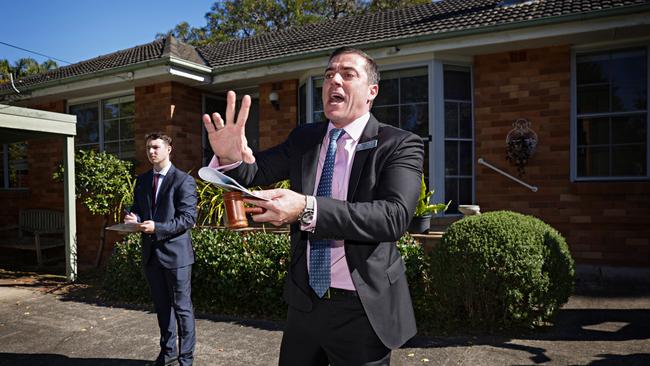Shock May rate rise fails to slow property prices
Rising rates have failed to slow the increase in house prices, which are becoming widespread and entrenched through capital cities.

The surprise interest rate rise in May was unable to slow the momentum in house prices, with a further rise last month underpinned by the few homes on offer.
PropTrack’s latest Home Price Index released on Thursday revealed prices nationally rose 0.33 per cent through May, led by capital city markets. It continues a rising trend that has been set over the past five months, taking prices 1.55 per cent higher than the market’s December low point.
Sydney is now one of the fastest-climbing markets after leading the recent correction, up 0.58 per cent last month. Melbourne recorded a more mild increase of 0.22 per cent.
PropTrack senior economist Eleanor Creagh said the market was definitely “gathering steam”, with rises proving widespread. “We’ve seen that market conditions have improved so far this year,” Ms Creagh said.
“Supply constraints have eased slightly with respect to total stock for sale, but the flow of new listings remains soft. This is keeping a floor under prices, with sellers benefiting from less competition with other vendors.”
The strongest markets last month were Canberra (up 0.65 per cent) and Perth (up 0.64 per cent). Adelaide increased 0.58 per cent, taking its yearly gains almost 5 per cent higher despite challenging economic conditions.
Brisbane gained 0.33 per cent in May, while Hobart moved 0.07 per cent higher. Darwin was the only capital city that recorded a decline in May. Regional property prices held largely steady last month, broadly up 0.03 per cent. Auction activity has improved and clearance rates remain firm in recent weeks after rising above levels seen in the second half of 2022.

“My sense would be that if we were to see another rate hike, it would probably come a little bit later in the year when we have, again, another update on the quarterly inflation read,” she said.
Recent increases had had little effect on the market, likely because the Reserve Bank “front loaded” the rate cycle with several hikes of 50 basis points. “In that front-loaded tightening scenario, I think it makes sense that the majority of the impact revealed itself early on,” Ms Creagh said.
“Even though there is a risk interest rates could rise a bit further from here, we know that the bulk of the tightening cycle is done. A lot of the uncertainty buyers experienced, say 12 months ago, with respect to future borrowing capacities and mortgage servicing costs is subsiding.”
Winter is traditionally a quieter period for the property market, with Ms Creagh tipping that a rise in listings is more likely in Spring. The Reserve Bank will meet to decide on interest rates next Tuesday.



